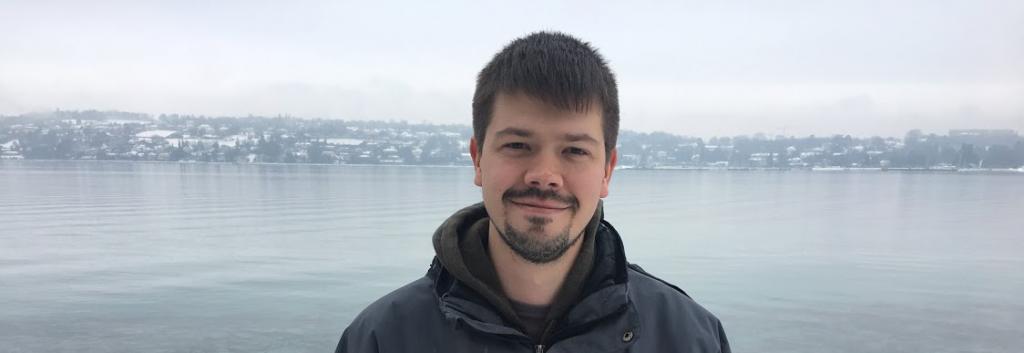What is your research concerned with?
I am writing my thesis on the politics of Christians in Aleppo during the crucial first phase of the French occupation of Syria, from 1920 to 1936. I call this period “crucial” because it was in these years that the modern nation-state of Syria was created with more-or-less its current borders, population and institutions, and when Aleppo was politically incorporated into Syria for the first time. Before these years, Aleppo and the rest of Syria had been part of the Ottoman Empire, a multiethnic Islamic empire where Christians were officially assigned second class status until late in the 19th century. These were also the years when tens of thousands of Armenian Christian refugees, survivors of wartime genocide in Turkey, settled in Aleppo, swelling the Christian share of the city’s population to nearly one-third.
With the empire gone, a new occupying power taking its place, new borders, and new religious demographics, a great deal was up for grabs in interwar Aleppo. A new nation had to be articulated and defined, and its power structures had to be created. I want to discover the role of Christians in that process – to investigate how Christian group solidarity, group memory of past persecutions and discrimination, and in-group networks impacted operated in these years. My early findings indicate that, while Christian intellectuals in Aleppo signed on to the Syrian Arab nationalist program early on and became some of its most articulate spokesmen, the general mass of the Christians in Aleppo were much warier of seeing power handed to the Sunni Muslim elites in Damascus, and at times mounted active resistance against the nationalist agenda.
How have you been going about it?
Because of wartime conditions in Syria, I have not been able to go to Aleppo or to the Syrian national archives in Damascus to do research. Instead, I have used archives held in France and Switzerland by the French government, French religious associations and the United Nations. I have also benefitted from the work of an incredible network of Syrian scholars who have been working in recent years to digitize old newspapers and books from Aleppo and publish them on the internet. Other scholars have also generously made their own archives available to me. My sources are in Arabic, French, and Armenian, and I have had to learn the latter two languages basically from scratch to do my research. As a result, I’ve devoted most of my winter and summer breaks to language courses. A lot of amazing teachers and friends have helped me in this effort, and I’m very grateful to them.
In using primary sources, I endeavor, like all historians, to read them “against the grain” – to examine them critically and search for loose strands in the fabric of their narrative, to identify the discourses and biases that guided the sources’ authors as they interpreted the events around them, and hopefully, get a little closer to “what really happened.” At the risk of a great oversimplification, I would say that French sources tend to give too much importance to religious identity in explaining political events and movements in Syria, while Arabic sources are at pains to deny religious motivations in order to assert the existence of a Syrian Arab nation. (These two tendencies are still very evident in scholarship and political discourse about Syria today.) My guiding assumption is that the peoples of Aleppo were not defined a priori by either their religion or their nationality, but that both religious and national group alignments developed together over time in an interactive process.
What led you to focus on this particular set of issues?
In 2010, I was generously welcomed into the Greek Catholic community in Damascus, Syria, to work as an English tutor at their patriarchate’s youth seminary. I stayed there for nine months, through the first two months of the protests against the Assad regime (March-May 2011). I was struck by how my Syrian friends’ Christian identity informed their response to those events, and how different their politics were from the politics of American Christians like myself. In all my work and studies since then, I have tried to stay connected to Syria and learn more about it. It is a country that is beautiful beyond words, home to incredibly brave and generous people. What has happened there over the past eight years is simply criminal.
The specific topic for my thesis came to me as I was working on my master’s thesis about the 1925-1927 revolt against French rule in Syria. Keith Watenpaugh’s magisterial book Being Modern in the Middle East had already primed me to think of Aleppo as a city with a political trajectory and culture distinct from that of Syria as a whole. In my master’s thesis research, I came across an American diplomatic telegram from 1926, when the French were holding elections in Aleppo, but not the rest of Syria, to reward Aleppo for not joining the revolt. In this telegram, the American diplomat explained that the Muslims were planning to boycott the election to defend the unity of “the Syrian nation,” while the Christians were planning to go to the polls in force, so that they could take over Aleppo’s government and make Aleppo autonomous from the rest of Syria (as it had been from 1920-1924). This diplomat’s conclusions were perhaps overdrawn, but it made me start wondering about the role religious identity played in creating Syria, and about how, like Aleppo itself, Aleppo’s Christians might have had their own political interests and trajectory.
KEYWORDS: International History Programmes; International History


